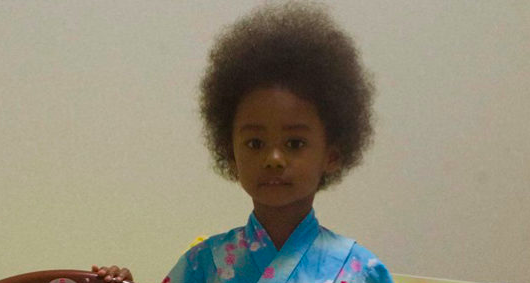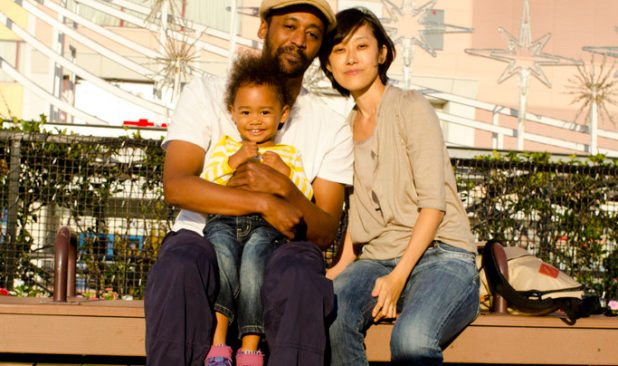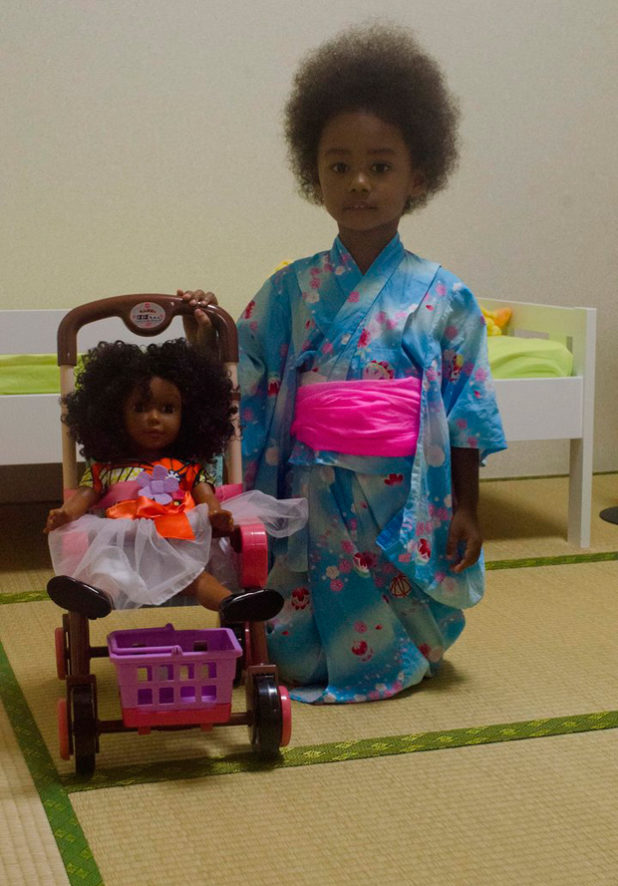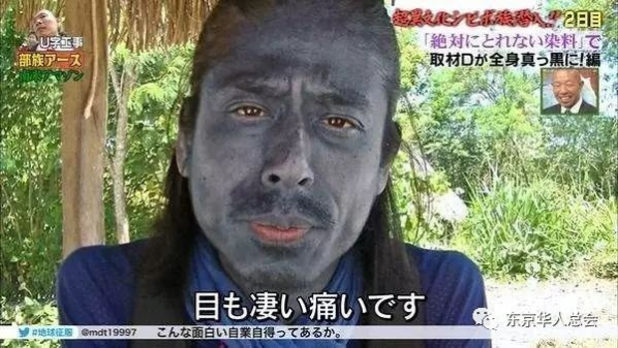The Westernized negro is a fascinating creature to observe.
Thanks to decades of relentless Jewish propaganda, which told them that their failures in life are due to the racism of others rather than genetic inferiority, these people have become the most entitled beings on Earth.
Though white people still bear the brunt of this entitlement complex, other races are starting to get a little taste of it too as blacks continue to enrich the globe with their presence.
The latest negro to publicly whine about the world not catering to his specific racial needs is Tracy Jones, an “African-American” who married a Japanese chick, had a little brown nip-nog with her, then spent the last few years in Tokyo bitching about how Japanese society doesn’t treat him or the nip-nog like Japanese people.
“I live in Tokyo, in a homogenous society where 98.5 percent of the population is Japanese. My wife Haruki is Japanese, and my 4-year-old daughter Kantra is the only black girl in her preschool class. I remember when the Japanese delivery nurse called her Halle Berry immediately after my wife gave birth to her.
They were the first words my daughter ever heard. When the nurse sensed my confusion, she tried to improve her comment: “Naomi Campbell?”
This is the part where we’re supposed to be disgusted at the brutal racism coming from the mouth of this Japanese nurse.
You should be flattered that the nurse compared your daughter to attractive negresses like Halle Berry or Naomi Campbell, Tracy. That photograph of her with a black doll looks like something from The Shining:
“Come play with us, Danny! For ever, and ever, and ever!”
I moved to Japan in 2011 and for the first two years, I couldn’t figure out if I was insane or if Japan was like America where, as a black person, I was accustomed to sensing white fear and the possible danger of it harming my body.
How does “white fear” harm a body?
It is a veiled reference to white cops shooting unarmed teens because those unarmed teens had guns?
If so, how does that mentality apply to a yellow country where violent crime seldom occurs?
On subways in Tokyo, commuters wouldn’t sit or stand near me. I didn’t know if I was imagining a strange rush of anxiety or making them uncomfortable. People would keep their distance, but they’d stare at me curiously.
Yeah, your race tends to have that effect on people.
I’m not sure why.
Just good old fashioned skin-hatred I guess.
“Daddy, what is that?” my 4-year-old asked me last November. We were standing in a subway tunnel, staring at an ad of a blacked-up Japanese man. “Sorry,” Haruki said to her, pulling Kantra away, “It’s bullying,” my wife said. “That’s scary,” Kantra replied.
The billboard was promoting the Japanese TV show “Chikyu Seifuku Surunante” (陸海空地球征服するなんて), which means “Taking Over The World.”
When Kantra was 2 years old, she ran up to a boy on the playground and asked him to play. The boy squared up to her like a boxer and swung, stopping his fist inches away from her smiling face. Children would flee from her as if she were King Kong. “Kowai (scary),” a girl said, gripping her mother like one would a life preserver to keep from drowning. “Come on, let’s go,” Kantra said, pulling the girl’s arm. It’s heartbreaking to witness her innocence denied.
The article goes on and on like this: something makes the kid feel bad because she’s half-black, then Tracy blames the 98.5% native population for not being accommodating enough to the 1.5% foreign population.
Near the end of the article, Tracy announces that he intends to move back to the United States for the benefit of the child – yes, the same America where, as a black person, he was accustomed to sensing white fear and the possible danger of it harming his body.
Why not Africa, where you and your mulatto child would fit in better?
How come it’s never Africa?
Here’s the final paragraph of the article. I don’t really know what it means, so I’ll present it without commentary, but I find it intriguing that this is the mentality Tracy will be bringing with him to the US:
My wife and I are in awe of Kantra’s persistence. If she learns anything from us, we hope it’s empathy. We don’t teach her that she’s above anyone else. But when she comes home from school and says, “Daddy, black is different,” I tell her, “No baby, white is different.”





